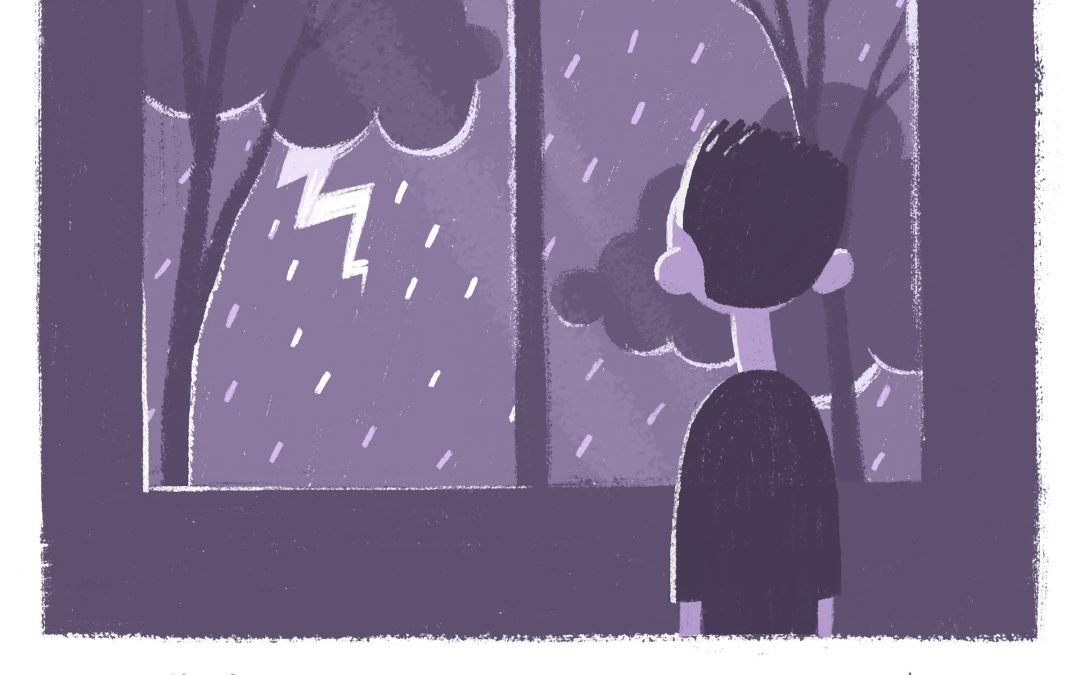Possible signs of teenage depression
I am not experienced in possible signs of teenage depression. So I asked trained psychologist O.A. who suffered from teenage depression to write an overview of from a personal and from a professional point of view.
She focuses on possible signs of teenage depression, and where you can start looking for help.
The article speaks for itself and I have made no changes to it. There are links at the bottom of the article if you have more interest. I have also included the links to helplines here if you feel that you need a quiet voice.
Take care and lots of love,
Luca
My experience of teenage depression
The word ‘depression’ was thrown around to describe my mental health for much of my adolescent life. I was first diagnosed with depression when I was twelve, and it persisted until my early twenties. I felt very alone at times, but I wasn’t. Depression is very common. Quite a few of my close friends either have been depressed or currently are.
The World Health Organisation (WHO) estimates that more than 300 million people are affected by depression worldwide (1). The amount of depression in young people appears to have increased dramatically. One study found that depression has increased by 63% in 12-17-year-olds since 2013 (2).
The larger question of what is driving this increase is something to think about. At any rate, it is not uncommon for certain diseases to become more prevalent as they are better identified and treated. May be because the more we can understand and identify depression, the more diagnoses are given, and, hopefully, more people receive the help they need.
So how is teenage depression diagnosed? And what does it feel like?
These questions seem like they should have straightforward answers. But depression can feel and look different depending on who you are. The actual diagnosis often uses a specific set of criteria defined by the DSM (the Diagnostic and Statistical Manual of Mental Disorders), which is updated and revised every 10 years or so.
According to the most current version, the DSM V, for someone to be diagnosed with Major Depressive Disorder, they must have a depressed mood, or a loss of interest or pleasure in daily activities, for period of more than two weeks. And their mood must represent a change from the person’s baseline, which causes some kind of difficulty for at least one part of their life. They should have 5 out of the following 9 specific symptoms that are present nearly every day, listed below
Possible signs of teenage depression
- Depressed mood or irritable most of the day, nearly every day, as indicated by either subjective report (e.g., feels sad or empty) or observation made by others (e.g., appears tearful).
- Decreased interest or pleasure in most activities, most of each day.
- Significant weight change (5%) or change in appetite .
- Change in sleep: Insomnia or hypersomnia.
- Change in activity: Psychomotor agitation or retardation (restlessness or slowness)
- Fatigue or loss of energy.
- Guilt/worthlessness: Feelings of worthlessness or excessive or inappropriate guilt.
- Concentration: diminished ability to think or concentrate, or more indecisiveness
- Suicidality: Thoughts of death or suicide, or has a suicide plan (3)
There may be fewer, or less strong, symptoms that indicate mild depression, rather than a full major depressive episode.
Depression in young people can manifest differently than adult depression.
Irritability is recognized as a core symptom for children or teenagers, rather than a depressed mood. It can also be overlooked if the main problems don’t seem to resemble depression. One paper from a peer-reviewed journal describes these problems as ‘unexplained physical symptoms, eating disorders, anxiety, refusal to attend school, decline in academic performance, substance misuse, or behavioral problems’ (4).
Feeling stuck
This description is almost a complete checklist of my behavior as a depressed adolescent aside from having an eating disorder and unexplained physical symptoms.
I did not go to school for weeks until I was found out. I used to bring a change of clothes, put my uniform in my bag, and spend the day at the library. There was an obvious decline in academic performance because I had essentially dropped out. I drank alcohol and used drugs. I had quite severe social anxiety.
I felt angry and alone.
It is normal to feel sad and frustrated when bad or stressful things happen. These reactions may fit the descriptions of the symptoms above; you might feel fatigued and tired, have trouble falling asleep because you are processing what happened, or even briefly think about the meaning of being alive, whether it is really worth the struggle after all.
However, these symptoms should be temporary, and fade as you process and return to the baseline. This isn’t the same with depression; it is not a reaction. Even though it can be connected with a lack of healthy coping skills, and become worse when bad things happen, it is still possible to be depressed even when every other aspect of your life seems perfectly fine.
If I could pick one word to describe the way it felt it would be stuck. And if I could pick two words it would be hopelessly stuck.
That’s how it felt for me. I believe that’s the way it feels for many other people too.
Why does teenage depression happen?
Ultimately, the brain is extremely complex. Everyone is working on a different part of the puzzle, so the answer you get might depend on who you ask.
Those who are closer to the treatment of depression might begin with explaining the role of serotonin, a type of neurotransmitter, and how using SSRIs (Selective Serotonin Reuptake Inhibitors), improves symptoms of depression (5).
An affective neuroscientist, who researches the role of emotion in the brain, may point to abnormalities found in areas that are associated with emotional processing such as the pre-frontal cortex, amygdala, and hippocampus (6).
A cognitive neuroscientist might point out repeating negative thought patterns, or rumination, and that the brains of depressed individuals appear to have impairments across areas that control inhibition, association, and future thinking (7).
They would probably all agree that there are strong genetic factors that combine with environmental factors that influence why one person or even one sibling may develop depression, while other people or other members of the family do not (8).
Biological explanations of teenage depression are useful because they rightly identify depression as a legitimate illness, but they don’t change the fact that the experience of depression is deeply personal.
Albert Einstein is believed to have said that ‘no problem can be solved from the same level of consciousness that created it’ and I think this is also true for depression, whether it is viewed as biological, personal, or a combination of both.
Thoughts about treatment of teenage depression
An effective treatment for teenage depression has to change the mechanisms that created it, not only target the symptoms.
I did receive medicine and various forms of therapy, but whatever was causing the depression to come back only lifted as I began to experience myself and the world differently. Sometimes the therapy helped with this, sometimes it didn’t. Everyone’s experience is different.
If you are experiencing any symptoms of depression, please go and speak with a professional. They will be able to evaluate your symptoms and offer therapy and/or medication.
Anti-depressants were not particularly effective for me in the long run, and therapy was hit and miss. If you have seen a professional or spoken to a family member, and the thought of therapy or medication is not something that feels comfortable for you, then there are some other things you can try that might help.
Meditation, for example, was found to be effective against negative thought patterns and rumination (9). There are so many different ways to meditate. Sometimes it can just be sitting alone with yourself without distractions, other times it’s about learning to listen to yourself without judgment. It can be about relaxation, solving a problem, or giving yourself a safe space to process negative emotion.
Exercise and physical movement is another good way to boost your mood (10), but it can be very difficult to feel motivated enough to exercise when feeling depressed.
Sometimes it can even help just to establish a normal rhythm in your life. Sleeping 7-8 hours, eating and showering etc all on a normal and well-established pattern.
Traveling, going to new places, trying different things, and speaking to different people was also helpful for me.
Meditation, traveling, and exercise have a common element. They have a way of bringing you to the present. They also increase your confidence, give you something new to talk about, think about, and experience.
You are not alone
Depression can make you feel like you are alone.
If you see a friend who you think might be feeling depressed, don’t be afraid to speak with them. A small gesture can have a big impact.
Communication doesn’t make problems just magically disappear. But it means that someone is listening to you, and you are listening to someone else. Some of my friends who are depressed have difficulty sharing their thoughts and emotions. It’s not easy to share when you are depressed. But if you don’t share then you are stuck with that negative person inside your head. You can challenge these thoughts by bringing them out in the open.
You’re not alone. And not worthless. You have important things to do here. And you are loved by many people. Allow others to remind you of these facts if you find yourself questioning them.
And please be the person who reminds your friends when they forget.
O.A.
References and Links
- https://www.who.int/mental_health/management/depression/en/
- https://www.bcbs.com/the-health-of-america/reports/major-depression-the-impact-overall-health
- https://www.psnpaloalto.com/wp/wp-content/uploads/2010/12/Depression-Diagnostic-Criteria-and-Severity-Rating.pdf
- https://www.ncbi.nlm.nih.gov/pmc/articles/PMC3488279/
- http://clinchem.aaccjnls.org/content/clinchem/40/2/288.full.pdf
- http://www.its.caltech.edu/~squartz/davidsondep.pdf
- https://www.ncbi.nlm.nih.gov/pmc/articles/PMC2767460/
- https://ajp.psychiatryonline.org/doi/full/10.1176/appi.ajp.157.10.1552
- https://www.researchgate.net/profile/John_Mcquaid/publication/227134735_The_Effects_of_Mindfulness_Meditation_on_Cognitive_Processes_and_Affect_in_Patients_with_Past_Depression/links/00b7d52957b82141dd000000.pdf
- https://www.ncbi.nlm.nih.gov/pubmed/8778396

